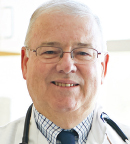Earlier this month, ASCO announced it has collaborated with Innovative Oncology Business Solutions, Inc (IOBS) to launch ASCO COME HOME, a patient-centered oncology medical home, to help transition community oncology practices from volume-based care to value-based care and to prepare oncologists to meet the requirements for alternative payment systems specified in the Medicare Access and CHIP Reauthorization Act (MACRA).

Barbara L. McAneny, MD
The ASCO initiative builds on a program Barbara L. McAneny, MD, Chief Executive Officer and Chief Medical Officer of IOBS, launched in 2012 after receiving a $19.76 million grant from the Center for Medicare & Medicaid Innovation (CMMI), a component of the Centers for Medicare & Medicaid Services (CMS). The grant was intended to develop a community oncology medical home model for newly diagnosed or relapsed Medicare beneficiaries—as well as commercially insured patients—with one of seven common cancer types and to implement that model in seven practices throughout the country.
The goal of the program is to improve patient care and health outcomes and significantly reduce the cost of care and was instituted in seven community oncology practices throughout the United States: Austin Cancer Center, Fort Worth Centers for Cancer & Blood Disorders, Dayton Physicians Network, New England Cancer Specialists, New Mexico Cancer Center, NW Georgia Oncology Centers, and Space Coast Cancer Center.
ASCO COME HOME practices deliver outpatient care, including triage and treatment pathways to help standardize treatment and efficiently manage side effects, patient education and medication management counseling, team care, 24/7 practice access, on-site or near-site imaging and laboratory testing, and access to admitting physicians to ensure safe and efficient care.
The ASCO COME HOME concept incorporates seven components of oncology care:
- An ongoing relationship with a personal physician to provide first contact and continuous, comprehensive care
- Physician-directed team care
- Whole-person orientation
- Integrated/coordinated care
- Evidence-based medicine and performance measurement to ensure quality and safety
- Enhanced patient access
- Payment to recognize the value-added aspect of a medical home.
Improving Patient Care at Lower Cost
When IOBS launched its COME HOME model 4 years ago, it projected that the overall Medicare cost savings would be $4,178 per member, per year, representing a savings of about 6.276%. Based on a Medicare enrollment of 8,022 patients over 3 years, IOBS projected total Medicare savings of $33.5 million and net savings of $13.76 million after budget costs.1 Earlier this year, IOBS announced 6-month data from the 7 participating oncology medical home practices showing significant reductions in hospitalization rates, inpatient days, and total cost of care of approximately $5 million.2
The seven practices that have used this system have been highly successful in accomplishing the goals of providing patients with higher-quality care at a lower cost.— Stephen Grubbs, MD
Tweet this quote
For example, according to ASCO, the early results show a decrease in 30-day hospital readmission rates by 11.7%, emergency room visits by 6.6%, inpatient hospital admissions by 12.5%, and the overall cost of care by 7.2%. In addition, the 7 ASCO COME HOME practices combined also garnered a high patient satisfaction rate, averaging between 91.3% and 98.1%, throughout the program grant period.
“These data showing how well the COME HOME care model works are what made it attractive to ASCO,” said Stephen Grubbs, MD, Vice President of ASCO’s Clinical Affairs Department. “The grant to IOBS from CMS/CMMI is now finished, but IOBS still has the program’s readiness assessment and implementation tools as well as its software and analytics programs, so we have licensed the products and the COME HOME name from IOBS and expanded the medical home program.”

Stephen Grubbs, MD
One set of tools in COME HOME helps oncology practices assess whether they are ready to transition to an advanced alternative payment model under MACRA, and others help practices actually make the change to the new reimbursement payment system, explained Dr. Grubbs.
ASCO’s Fee-Based Consultancy Service
ASCO COME HOME is a fee-based consultancy service the Society is offering its members, and ASCO is now recruiting oncology practices for the COME HOME program, which will be operational early in 2017. The cost of the service is still being determined.
“We haven’t yet priced out the cost of this consultancy service and the adoption and use of the tools contained within the COME HOME program. The program will be reasonably priced and attractive to ASCO members, but this is not a free service,” said Dr. Grubbs. “The seven practices that have used this system have been highly successful in accomplishing the goals of providing patients with higher-quality care at a lower cost. These are exactly the tools and consulting services that oncology practices need to make sure they are successful in this new value-based care environment. This consultancy service is new territory for ASCO, but our members have been asking us for ways to help them operate their practices more efficiently, and COME HOME will provide the tools they need to successfully make the transition from volume-based care to value-based care.”

For additional information about the ASCO COME HOME medical care model and to enroll in the fee-based system, contact Elaine Towle at elaine.towle@asco.org. ■
References
1. Innovative Oncology Business Solutions: The COME HOME Model. Available at www.comehomeprogram.com/index.php/come-home-practices. Accessed November 10, 2016.
2. Kuznar W: Oncology medical home shows significant cost-savings, improved care delivery. The Oncology Nurse 9(1), January 2016. Available at www.theoncologypharmacist.com/ton-issue-archive/2016-issues/january-vol-9-no-1/16639-oncology-medical-home-shows-significant-cost-savings-improved-care-delivery. Accessed November 10, 2016.

